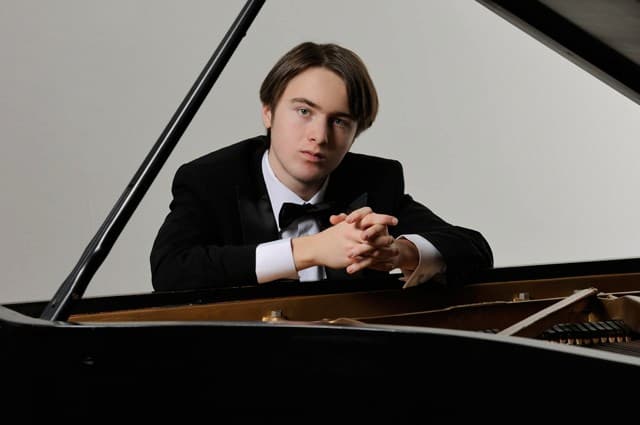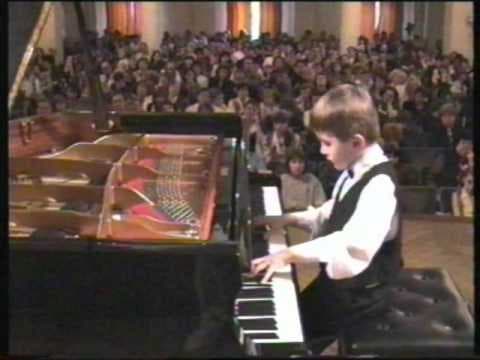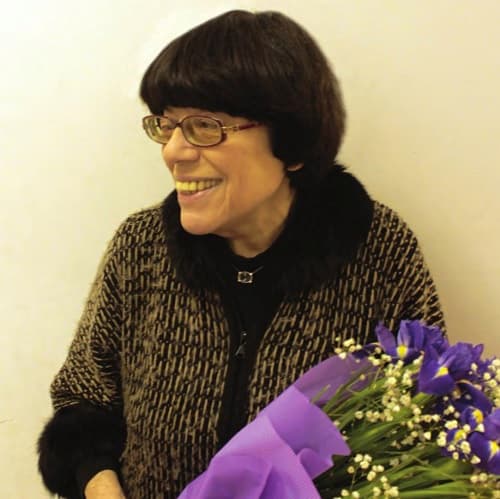Possessing jaw-dropping technique and outer-worldly interpretive skills, pianist Daniil Trifonov has been called the “most astounding pianist of our age.” Martha Argerich famously said, “what he does with his hands is technically incredible. It’s also his touch; he has tenderness and also the demonic element. I never heard anything like that.” It is, therefore, hardly surprising that Trifonov has been labelled “arguably today’s leading classical virtuoso.”
Daniil Trifonov Plays Liszt’s Transcendental Etude No. 10
Nizhny Novgorod

Daniil Trifonov, 2017
Daniil Trifonov was born on 5 March 1991 in Nizhny Novgorov, one of Russia’s biggest cities. Located at the confluence of the Oka and the Volga rivers in Central Russia, the city is known as the birthplace of Mily Balakirev, Grigory Ginzburg, and Vladimir Ashkenazy. You may also recognise the city as the place of exile for the eminent Soviet nuclear physicist Andrei Sakharov, who was banished there after criticising the Soviet Communist government.
For Daniil Trifonov, “the city has a very nice atmosphere, but of course, it is not very famous outside of Russia. It’s not a cultural centre like Moscow and St. Petersburg, but in population it is the third biggest city in Russia after those two. There are music conservatories, a good philharmonic orchestra and it is known for several exceptional pianists.”
Sergei Prokofiev: Sarcasms, Op. 17 (Daniil Trifonov, piano)
Only Child

Trifonov was the only child born into a highly musical family. His father is a composer and his mother a music theory teacher. As he explained, “there are also musicians further down the line as his grandmother and great-grandmothers were choir conductors. Every one of them is really well-connected to music.”
As a very young boy, Daniil wasn’t really attracted to the piano, but he did have perfect pitch. His first love was a Midi keyboard that his father had brought home for his compositional needs. “For me,” he explains, “this was a fascinating technological device. You could play one note, and a whole lot of different sounds came out.” Once he started experimenting with the Midi keyboard he also started playing the piano and began to compose as well.
Trifonov Plays Scriabin’s Etudes, Op. 42
First Performances
Aged five and with guidance from his parents, Daniil made lightning-fast progress and played his first solo concert at seven and his first performance with an orchestra one year later. He primarily remembers that appearance in a Mozart Concerto because one of his milk teeth came out during the first movement. His parents realised the exceptional musical talent of their son, and they gave up their jobs and moved to Moscow.

Daniil Trifonov at 8 years old
Daniil was only nine when he entered the famed Gnessin School of Music. Recognised as one of the best music schools in Russia, it is a children’s musical community for particularly talented youngsters. Established to foster the “future music elite,” the institution has brought forth world-renowned musicians including Boris Berezovsky, Evgeny Kissin, Konstantin Lifschitz and Daniil Trifonov.
Daniil Trifonov Plays Mozart’s Piano Concerto No. 9 “Jeunehomme”
Tatiana Zelikman

Tatiana Zelikman
Trifonov became the student of Tatiana Zelikman, a pianist from a long line of German/Russian pianism taught by Heinrich Neuhaus. Her studies with Theodor Gutman, a distinguished Neuhaus student, turned her, according to Trifonov, “into an amazing musician. When I arrived in Moscow, I had hoped to have a chance to play for her, and I ended up studying with her for 8 years, from age 9 to 18.”
Life at the Gnessin School of Music was highly competitive and intensely disciplined. “We lived in a distant suburb,” explained Trifonov, “and I had a 90-minute journey each way by bus, train and Metro, sometimes seven days a week. There were about 20 pianists in my year, and besides instrumental tuition and general subjects, we were given advanced training in aural tests and harmony.”
J.S. Bach: Die Kunst der Fuge (The Art of Fugue), BWV 1080: Contrapunctus XIV (completed by D. Trifonov) (Daniil Trifonov, piano)
Work Ethic
Under the guidance of Zelikman, Daniil Trifonov quickly won a number of prizes at smaller competitions. On one hand Zelikman was careful not to push her young charge into a pianistic career, and on the other, she was a very critical teacher. “She certainly instilled the idea that it was not enough to just be a good musician or pianist. It’s also important to have a sensitive personality which can reach in all musical directions.”
When Daniil was thirteen, he broke his left hand during a fall and couldn’t play the piano for three weeks. “It was absolute torture for me,” he explained. “Basically, this wasn’t a moment about realizing technique or other things but about how important music was to me. It was so uncomfortable and so stressful not to be able to play…” Even now, Trifonov confesses that he “cannot afford myself more than one day of not practicing; and usually that one day is for traveling.”
For more of the best in classical music, sign up for our E-Newsletter
